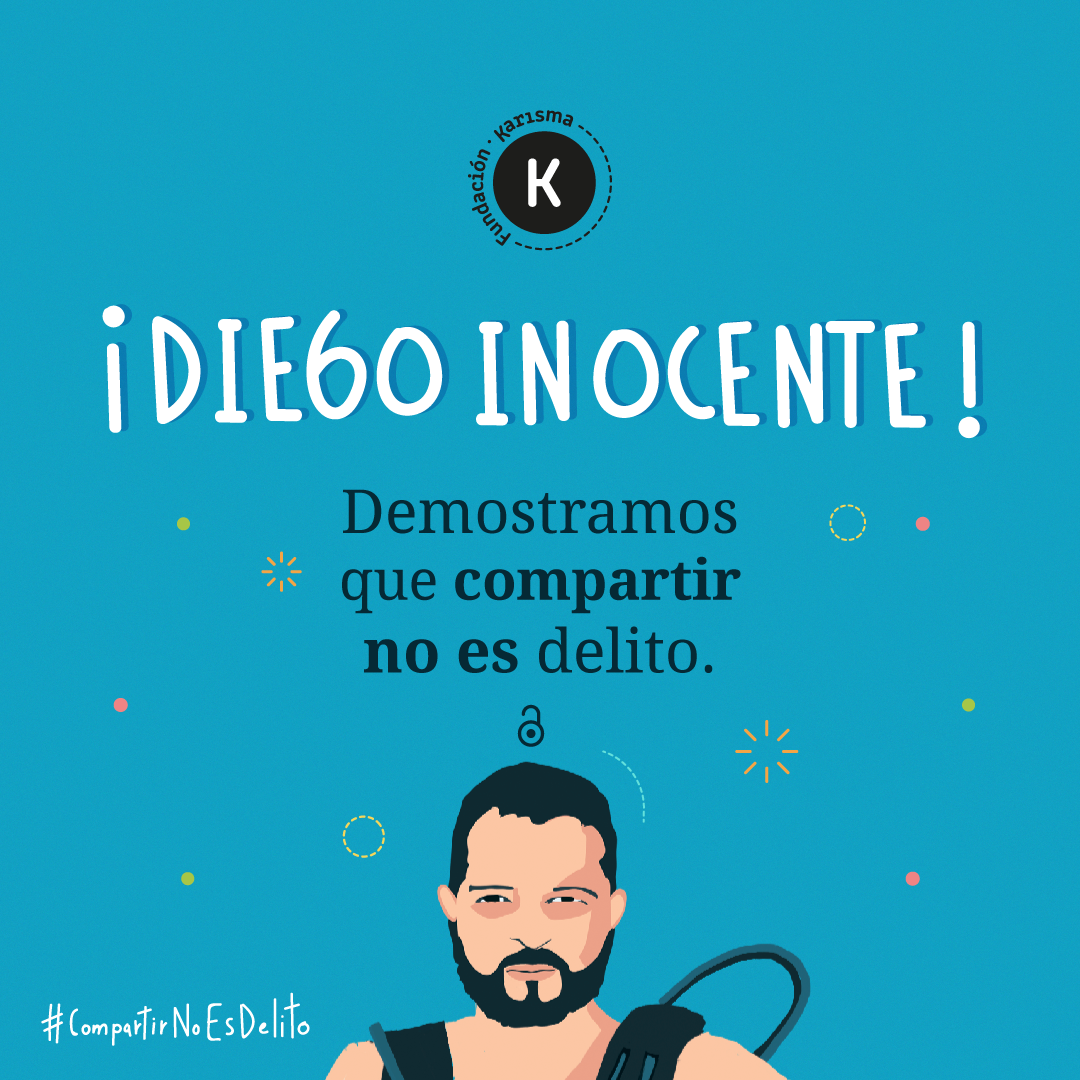A case with no precedent that highlights the need for Open Access to be the rule, no the exception, regarding circulation of scientific research.
Today, more than three years after criminal procedures began, Bogotá Circuit Criminal Court No. 49 acquitted the biologist Diego Gómez of charges of copyright violations for sharing an academic paper online. A conviction would have represented a sentence of 4 to 8 years in prison an a significant fine.
The case began in 2014 when prosecutors filed charges against Gomez. A few years earlier, when he was a biology student at the University of Quindio in Colombia, Diego Gómez shared on the internet a master’s thesis he had found useful for his study group on amphibians. He uploaded it to Scribd, a service that hosts millions of documents on its online platform.
The author of the paper pressed criminal charges under Colombia’s strict copyright laws for the “violation of [his] economic and related rights.” that ended up individualizing Diego as the responsible. Today’s verdict comes after more than three years of hearings and delay.
“The decision of the Court is an important step that guides Colombian criminal justice towards international standards where this measure is reserved only for piracy. This case must spark a serious debate over the necessity of Open Access. Today we celebrate that justice was made in an absurd case that could have set a bad precedent for access to knowledge in Colombia,” said Carolina Botero, director of Fundación Karisma, a civil society organization that has supported Gómez since 2014 through “Sharing is not a crime” campaign. However, Diego’s defence expects the Prosecutor or the claimant to appeal the Court’s decision and the process to continue before Bogotá High Court.
Open Access allows immediate and online access, without subscription or payment requirements, to educational, academic and scientific material that is distributed with a free license that also allows its reuse and copy. This is a model that updates a broken scientific publication system to the internet dynamic and a model that returns to its original function: accelerate the research process.
“Today’s innocent verdict comes as a relief to thousands of Open Access supporters who have been following Diego Gomez’s case for almost three years,” said Nick Shockey, Director of The Right to Research Coalition. “Diego is the only known student to face criminal charges for posting an academic paper online. His case echoes that of Aaron Swartz, and should serve as a clarion call for the support of Open Access, which must become the global default in academic publishing.”
With the appeal process pending, Diego must return to his work on biodiversity conservation having in mind that a conviction for sharing an academic paper online is still possible.
Fundación Karisma will launch a crowdfunding campaign soon with the support of international allies. The campaign has three goals. First, cover the legal fees of the appeal process and the exploration of legal means to prevent cases such as Diego’s to occur again. Second, the production of a case study that allows to tell Diego’s story and to highlight the need for open access to knowledge. Finally, crowdfunding resources will be spent on lodging and traveling costs for Diego, who currently works on a natural reserve in Costa Rica.
More info on Diego’s case here. More on Open Access here.
On social networks, people has supported Diego Gómez with the hashtag #CompartirNoEsDelito and around the world, with #StandWithDiego.

